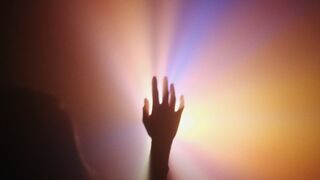Spirituality
Finding Spirituality After Doubt Has Shattered Your Beliefs
A new book describes how doubt can result in empathy and authentic spirituality.
Posted December 7, 2021 Reviewed by Abigail Fagan
Key points
- Many religious institutions teach either/or thinking and discourage questioning beliefs.
- Those who doubt beliefs may be ostracized from their religious communities.
- Doubt is the first step in spiritual development and can lead to harmony.
- Those in spiritual harmony move beyond specific beliefs to see the core of humanity with empathy and love.
Research finds that spirituality is associated with better mental health and well-being. For generations in America, that spirituality was found in religion. Yet growing numbers of Americans have found that their religious beliefs and institutions have stopped working for them. They find themselves full of doubt, deciding whether to leave their religion and wondering if they can still experience spirituality.
To the doubters, former Christian pastor, current spiritual teacher, and mystic Brian McLaren offers his new book, Faith After Doubt: Why Your Beliefs Stopped Working and What To Do About It. In it he argues that doubt may be painful, but it’s good for us. He then lays out a developmental process detailing how doubt can drive growth, and in the end, bring an experience of spiritual harmony. Even better, his model applies to both religious and non-religious spirituality.
Crisis in American Religion
McLaren understands why 65 million U.S. adults have dropped out of active religious attendance, and why that number increases by roughly 2.7 million a year. (Of note: the pandemic has driven a recent increase in religious participation.)

An insider, McLaren was raised in a Christian fundamentalist church, where he was warned that “an open mind is like an open window, you need a good screen to keep the bugs out.” (7) Later, he went on to become a pastor, thinking that “more time exposed to hymns and worship songs, more time in Christian fellowship meant my doubts would decrease, not increase.” (25) But after years of listening to people and counseling them in his role, McLaren found himself sharing his parishioners' doubts. And that doubt launched him and the church he served for 24 years on a journey of exploration that led to (sometimes painful) growth. Since retiring from the pastorate, he’s continued his work as a spiritual teacher and author.
“Most Christian denominations have painted themselves into a corner,” McLaren told me in an interview. “They have defined themselves by beliefs. And that leaves them unable to learn new things. When you define the boundaries and those boundaries are beliefs, then if you change your beliefs you're out.” In the book, McLaren shares heartbreaking stories of people who were “disfellowshiped” from their communities and even their families when they confessed to doubting some of their church’s beliefs.
“You're setting up people for dishonesty,” said McLaren, “Because in order to maintain their identity in the community, they have to keep saying they believe things that are harder and harder for them to believe.”
Dualistic Thinking and Authoritarianism
For McLaren, the problem is dualistic thinking. “If you think the way you're supposed to look at the world is through dualism, making judgments on everything is good or evil,” McLaren said, “then you don't use other parts of your brain, like imagination and curiosity. And I really think dualism inhibits empathy. Instead of trying to understand someone who's different, we just judge them. Instead of feeling their pain, we just identify their faults or errors.”
Buy into the either/or beliefs and you get a warm supportive community. Question them and you could lose your friendships, the activities that structure your life, and even your sense of identity as a religious person. “One of the ways that authoritarianism works is to say ‘Believe what I say even if everything you’ve experienced tells you it's not true,’” said McLaren.
His goal is not to give up on religion, but to transform it. “Something is wrong, dangerously wrong, not just in my religion but in all the interconnected religions of the world,” McClaren writes in the book. “People like you and me can play a part in detoxifying and healing our religious traditions,” a process in which “doubt can play a surprisingly constructive role.” (xviii)
Doubt
When a person’s experience directly contradicts their religious community’s teaching, they experience doubt. For those who cannot suppress their doubt, it may kick off a developmental process that eventually leads to what McLaren calls harmony.
McLaren terms the initial stage of religion as ‘simplicity.’ People at this stage learn dualistic thinking from their institution and do not yet question it. Even though this is what he wants people to outgrow, for McLaren this stage is necessary. “There's so much research on the idea that in development, higher-order skills depend on the lower order skills,” said McLaren.
But once doubt sets in, “we're often very angry,” said McLaren. “We're angry at structures and individuals that gave us incomplete answers made us feel guilty for asking questions. And who told us that we had to believe certain things, even though they now seem to us to be untrue and even harmful. And that anger can carry you a long way.”
“But eventually, you begin to turn the anger on yourself. And when that happens, you realize that just because you're you have a kind of Xray vision for other people's hypocrisy or other people's ignorance, it doesn't make you a morally superior person. That’s when you're going to turn the scrutiny you've been turning on everyone else back on yourself. I think that has a humbling effect for people that is one of the portals into harmony. And it's messy, I don't think there's any way for it not to be messy.”
For McLaren, the more those in doubt explore, and consider the world through other people’s eyes, the more they experience empathy. That’s when they begin to transcend their own limited perspectives. What comes next is harmony.
Harmony
“For the first time, it dawned on me: there's a difference between doubting God and doubting my understanding of God, just as there's a difference between trusting God and trusting my understanding of God.” (92) “Suddenly, without expecting it, there it was: a surprise, a sudden sense that God has been with me through all my doubts.” (93) McLaren writes about his own experience.
He called this new stage of his spiritual development harmony, because that's what he felt.
“You might call it a death to ego or pride,” McLaren writes, “as we relinquish our right to judge, to know, to control. You might call it a death to privilege, superiority, or supremacy, as we realize that all of us ultimately share in the human condition and anyone who claims otherwise is either naïve or hypocritical… Instead of seeing through everything, we see into everything and at the core, we find not meaningless and banality but profound inexpressible belovedness and beauty.” (97)
In other words, “a new music begins, quietly at first but rising to a steady crescendo, a music of appreciation, empathy, wonder, and, yes, all-embracing love,” writes McLaren. Essentially, a return to simplicity without naïveté or rigidity.
McLaren feels that harmony is something that is accessible to all of us, whether we are religious or secular. In harmony, “we learn to hold binaries in larger unities, to gather paradox and tension in a larger embrace, to welcome diversity without division, to hear a difference without dissonance.” (94) It is the essence of spirituality, and it drives those who find it into activity.
When it comes to their religions, those who emerge from doubt into McLaren’s "harmony" often reengage with their religion in a more meaningful way. And when it comes to their world, those in harmony often become passionate activists driven by empathy. No longer constrained by institutional orthodoxies, people who see the world with this kind of empathy are freed up to look at creative solutions.




